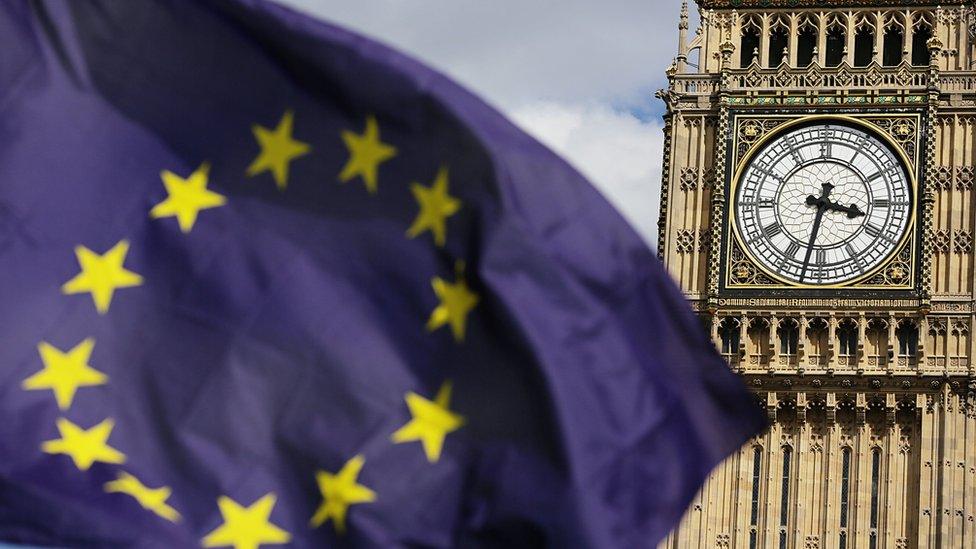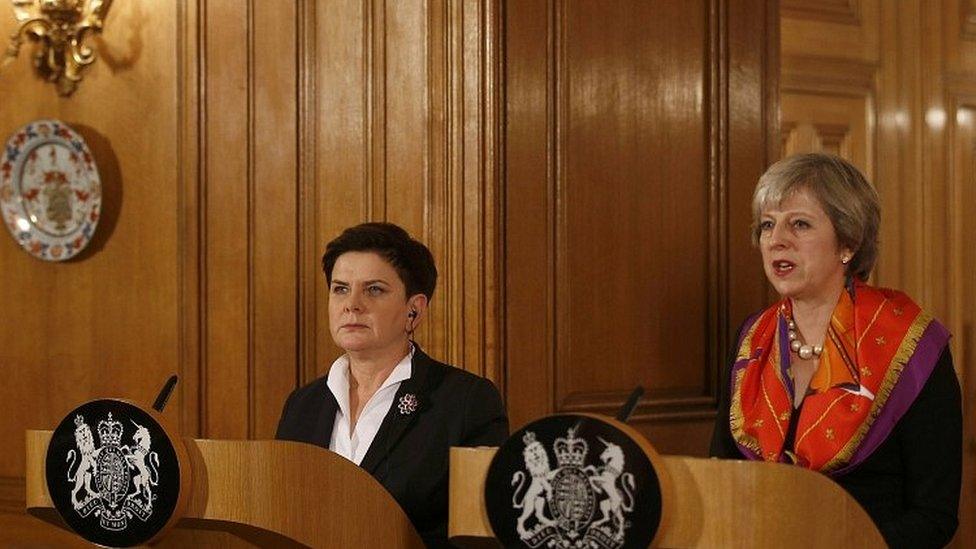Donald Tusk says no expat deal before Article 50
- Published

The status of UK and EU expats after Brexit can be resolved only once formal negotiations have started, the European Council president has said.
Donald Tusk hit back at criticism from UK politicians over the plight of EU nationals in the UK and Britons living overseas.
In a letter the 81 MPs and peers accused the EU Commission of "standing in the way" of a "reciprocal" deal.
But Mr Tusk said their criticism had "nothing to do with reality".
He said Brexit - not the stance taken by EU negotiators - had created "anxiety and uncertainty", saying the best way to "dispel the fears and doubts of all the citizens concerned" was to trigger Article 50 of the Lisbon Treaty, which begins a two-year negotiation process.

'No side deals'
BBC Europe correspondent Kevin Connolly

Theresa May held talks with her Polish counterpart Beata Szydlo this week
Europe's leaders are united in their determination to keep their negotiating cards close to their chests until the UK triggers Article 50.
National leaders like Angela Merkel and EU officials like the Council President Donald Tusk alike are adamant that there will be no side deals or talks on individual issues until Britain makes the first move.
But Theresa May's talks with her Polish counterpart Beata Szydlo this week suggested that the British side believes some issues can at least be discussed at this stage with individual member states.
Mrs May repeated her view that an early agreement could be reached guaranteeing the rights of Polish citizens in Britain as long as the rights of British residents of Poland were also protected.

UK Prime Minister Theresa May has said she will do this before the end of March.
Mr Tusk said the EU stood ready to find a solution, but only once Article 50 had been triggered.
Addressing Conservative MP Michael Tomlinson, who organised the original letter, he said: "Just like you, I would like to avoid a situation where citizens become 'bargaining chips' in the negotiation process.
"In order for this not to happen, we will need precise and comprehensive solutions, which, other than nice-sounding expressions, will provide citizens with genuine guarantees of security."
There have been widespread calls for the government to guarantee the status of EU nationals living in the UK, but ministers have said the issue should form part of the Brexit negotiations and would require reciprocal guarantees over Britons living abroad.
The government has said it expects the rights of both groups to be protected.